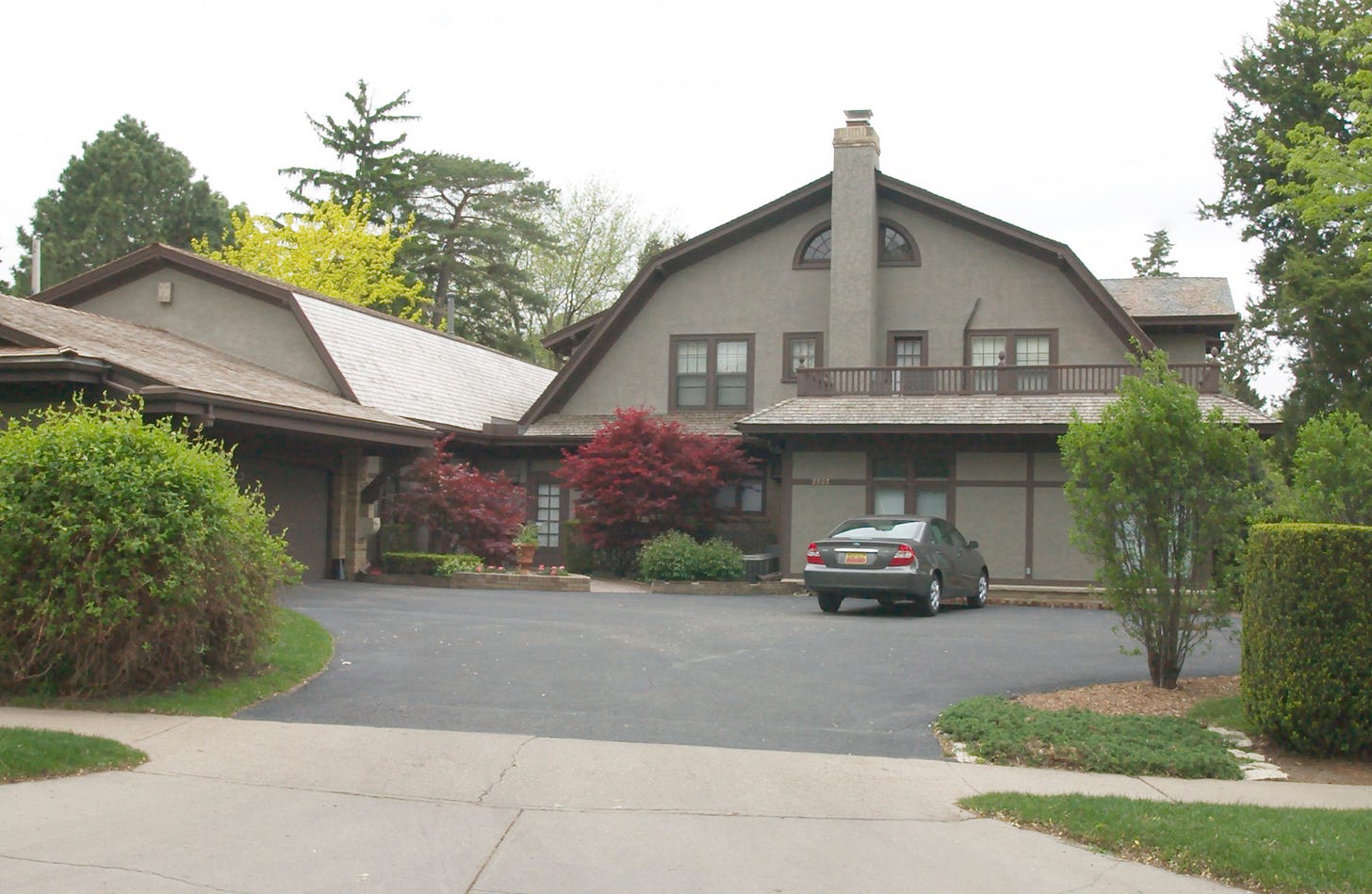What motivates Warren Buffett to keep on investing?
It's not really about the money anymore
One thing I know with close to 100% certainty is that Mr. Buffett is not trying make more money so he can spend it on himself or his progeny [1].
You see, he had already hit “his number” by the time he was around 27 years old when he'd saved enough – roughly $2 million in today’s dollars – through his early business ventures and successful investing to purchase (mortgage-free) a nice house in his hometown of Omaha and have enough left over to be able to live a comfortable upper middle class life solely off his investments for the rest of his life.
With the exception of his more recently [2] acquired affinity to travel around the world via private jet, his lifestyle really has not changed substantially since his 20s. He is a self-professed “creature of habit” and these habits have not changed substantially since Jack Kennedy was President.
And he still lives in that house:
Instead, I think Mr. Buffett remains motivated because of the following:
He simply loves it. He “tap dances” his way to work every morning where he gets to do things that he enjoys, which include "normal person" activities like reading a lot and talking with smart & interesting people that he cares about as well as “not-so-normal person” stuff like bailing out Goldman Sachs and every so often buying a $30 billion company or two.
His wants to maximize the per-share intrinsic value of Berkshire Hathaway. I know this because for the last three decades he has literally begun every single one of his Shareholder Letters by talking about this number [3]. That is why his dream is to live forever so that he can witness the magic of compounding work into eternity. And because he has bequeathed virtually his entire estate to the Gates Foundation, maximizing Berkshire Hathaway’s value will have a massive impact on society long after Mr. Buffett is no longer around – in a way accomplishing that dream.
At 86 years young, Mr. Buffett is still peaking as an investor and in his role as Chief Asset Allocator. That is one cool thing about the investing profession. Like fine wine (and unlike professional athletes), one can get better with age and the accumulated wisdom from decades of experience. Mr. Buffett created 99% of his wealth after his 50th birthday. While Berkshire Hathaway's percentage returns have declined moderately as its capital base has mushroomed, in absolute terms the company is generating more income and cashflow than ever – every month, Mr. Buffett and his associates need to figure out how to allocate well over $1 billion of incoming profits and cashflow.
He views Berkshire Hathaway as an unfinished work of art that is continuously being perfected. In many ways, Mr. Buffett is a true artist and his widely admired conglomerate is his opus magnum the same way the Sistine Chapel is to Michelangelo. It is the living embodiment and affirmation of his entire life's work – and what a masterpiece it has been.
As a professional investor, I’ve learned a tremendous amount from watching and following Warren Buffett as well as others. But I have also learned just as much about being a human from his life story – there are many valuable life lessons that can be drawn from his life’s journey but the one that stood out to me was ...
... the importance of figuring out who you are as a person, the things you enjoy doing and your passions – and then setting long-term goals and pursuing them to the very end. If you are able to find this passion and define what you “value” early in life, more power to you. But don't worry if you haven't found it yet – Mr. Buffett created 99% of his value after the age of 50 and so can you, howsoever you define “value”.
Notes
[1] Mr. Buffett’s views on inheritance summarized nicely in Dan’s answer here: Why do Bill Gates and Warren Buffett give their children such small sums, relative to their net worth?
[2] For the octogenarian, the mid-80s counts as being recent.
[3] Technically, the number he discusses is book value per-share. He does not fully equate accounting book-value per share to intrinsic value, but more as a decent proxy of it.
This was originally published on Quora in April 2016. Also published in Inc.

